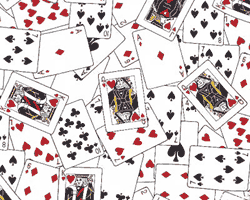 Every time history brings us to a fork on the road, our leaders have this extraordinary capacity to take the wrong turn. We then meander all over the place, blundering in the wilderness, to come back to where we started.
Every time history brings us to a fork on the road, our leaders have this extraordinary capacity to take the wrong turn. We then meander all over the place, blundering in the wilderness, to come back to where we started. Here we go again. The king, country, parties, and all of us have gone back to October Fourth. Once more we were taken through an excruciating search for a prime minister acceptable to all, or at least one against whom no one has any violent objections. No mean feat, considering that last time the only person who footed the bill was Mr Caretaker himself, Lokendra Bahadur Chand.
Once more we engaged in long debates about the constitutionality, or otherwise, of the process. And finally, we have fifth-time premier Surya Bahadur Thapa. If only he had agreed in October maybe we would have been prevented a lot of national heartburn, and not wasted months experimenting with this and that.
The UML has lost face, and can be expected to pour its fury out on the streets in the coming days. The Nepali Congress was torn by severe internal criticism of Girija Prasad Koirala's embrace of Madhab Kumar Nepal and will be more subdued. A question mark hangs over the whole peace process.
We are back to square one, but not to 4 October 2002. We are back to May 1990, when the first kangresi-communist interim government was formed to oversee elections after the Peoples' Movement. In terms of the evolution of democracy we have returned 13 years to a time when a new polity was being crafted.
The only difference today is that the euphoria of democracy is missing, the hope is gone- there is just an overwhelming sense of weariness with this game of musical chairs in Kathmandu. The entrenched political class, it seems, will go around in circles till there are no more chairs left. We find ourselves agreeing with the Maoist analysis of this as a shuffling of cards of the 'old regime'. History has moved on, stop-gap measures to buy time and prolong the power of Kathmandu's ruling cliques cannot last.
We can understand Madhabji's self-righteous rage. After all, he was the common candidate for prime ministership put forward by six parliamentary parties. But something happened between Friday night's joint-party meeting with the king, and Wednesday morning when Surya Bahadurji was summoned to the palace. What disqualified the leader of the Unified Marxist-Leninists?
The West has always been allergic to that pseudo-radical party name, and regional players had their own favourite who was not the UML general secretary. It is an indication of how weak we have become as a state that diplomats this time didn't even bother to conceal their meetings with political leaders and express their preference for leadership.
We have brought this interference on ourselves. It is our own disunity, dismal governance and the absence of a sense of greater national purpose that makes us so vulnerable to geo-political tectonics. In the end, it shouldn't really matter whether it was Surya Bahadur or Madhab Nepal, the king would have used Article 127 to appoint either. Both would have the unenviable task of trying to agree on the composition and portfolios of a new cabinet. And both would have had to work with other parties to fill the cabinet posts.
This may then be the time to look forward and help create a stable interim administration under a newly-powerful prime minister to take the peace talks forward, and oversee local and general elections. Surely, that is worth uniting for.


